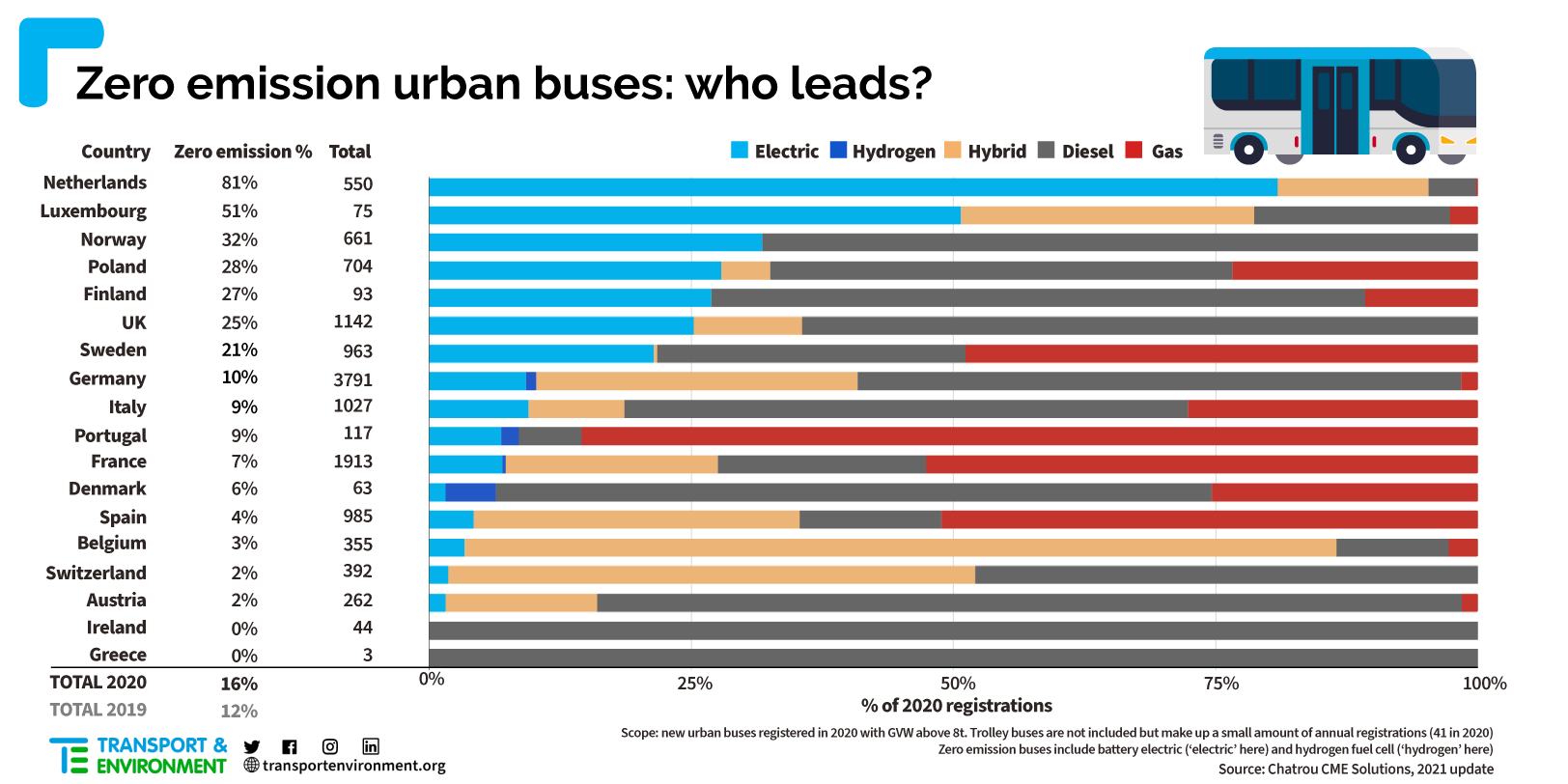16% of new urban bus purchases in Europe were zero-emission in 2020 compared to 12% in 2019, a new T&E analysis shows. The Netherlands was the clear leader with 81% electric buses, however, progress across the continent is too slow to decarbonise and cut air pollution, says T&E.

Luxembourg was the only other country with more than half zero emission bus sales (51%) followed by Norway (32%) and Poland (26%).
James Nix, freight manager at T&E, said: “Significant progress in the Netherlands and Poland is particularly heartening. It shows that with a political will at the city level, green action is possible regardless of where you are. However, too many cities and countries aren’t doing enough.”
Lagging behind with less than 5% zero emission bus sales are Spain, Belgium and Austria, while Ireland and Greece bought none at all.
Positively, new diesel buses now account for less than half (43%) of new urban bus sales, down from 61% in 2019. This is particularly good news for urbanites who are blighted by heavily polluting diesel.
But, worryingly, the number of gas buses is on the rise, up to 20% from just 13% the year before. This is despite a T&E study showing that LNG trucks are not a viable solution to reduce emissions, neither in terms of greenhouse gases or air pollutants.
Lucien Mathieu concluded: “To clean up the air we breathe and to ensure public transport is as green as it can be, we need real zero-emission solutions. No hybrids and no gas. To ensure that we get there across the bloc, the EU revision of the truck and bus CO2 standards should set a 100% zero emission sales target for urban buses by 2027 to speed up the transition.”
Zero emission buses🚌are on the rise: 16% of new sales in 2020 (12% in 2019)
Good news but progress too slow for race to decarbonise and cut air pollution. To speed up, EU should set 100% zero emission sales target for urban buses by 2027
🧵on the state of the EU bus market👇 pic.twitter.com/hetCTqvOWf
— Transport & Environment (@transenv) January 19, 2022


